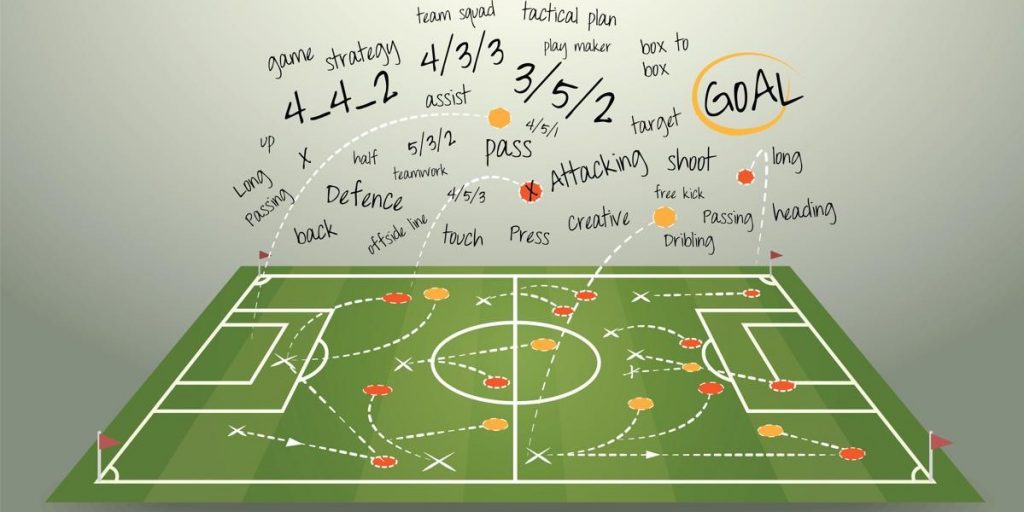
It may seem like it’s just 22 people kicking a bag of wind around a field for 90 minutes, but in reality playing football is a highly technical game that requires a lot of maths skills from players’ management.
Sports like American football are considered very analytical and stats-driven; you can’t watch a game on TV without being bombarded with facts and figures by pundits and commentators. Although coverage of football (or soccer) games doesn’t always cover this much detail, it’s a sport that is just as reliant on maths.
Keeping Score
In football, keeping score is about as simple as it can be: each goal is always worth 1 point. This makes it simple to know what a team must do to win. For example, if they’re tied 1-1, they just need to score one more goal.
Calculating Odds
Football is big business. It’s the most-watched game around the world, with billions generated by clubs in the top leagues and millions paid to players each year. Betting on football games is popular among many fans, especially those in the UK and elsewhere in Europe.
There is a whole industry of oddsmakers who use maths to calculate the probabilities of a team winning, drawing, or losing a particular game. They then offer fans odds on wagers on each of these outcomes. Sites like oddschecker take this a step further by comparing the odds and examining the same stats to offer fans tips and predictions.
Winning Penalties
Penalty shoot outs in football games are a controversial subject. They’re used to decide the winner of a match if the game cannot end in a tie and they’ve played the full 90 minutes and an additional 30 minutes of “extra time”.
Penalty shootouts are only used in competitions like the World Cup or the Champions League where the losing team is knocked out and a winner is required.
By analysing statistics, a team of researchers in Amsterdam were able to see that goalkeepers of teams that are losing the shootout are twice as likely to dive right, while the penalty takers had no preference in which direction they shot.
Therefore, maths can be used to give your team a statistical advantage that could mean the difference between the World Cup and going home empty-handed.
Getting Your Angles Right
Whenever a football player kicks a ball or makes a throw-in, they subconsciously calculate the angle they want the ball to travel at to reach their intended spot. This may be into the goal or to a teammate.
For throw-ins, being able to throw the ball far can help your team take control and progress up the field. In England, Liverpool showed in the 2019-20 season that throw-ins can be useful in gaining an advantage over their opponents, having recruited a dedicated throw-in coach.
Part of the perfect throw-in technique is the angle that you throw it. Research by Brunel University found that throwing the ball at 30 degrees (not the commonly assumed 45) will make the ball travel the furthest.
